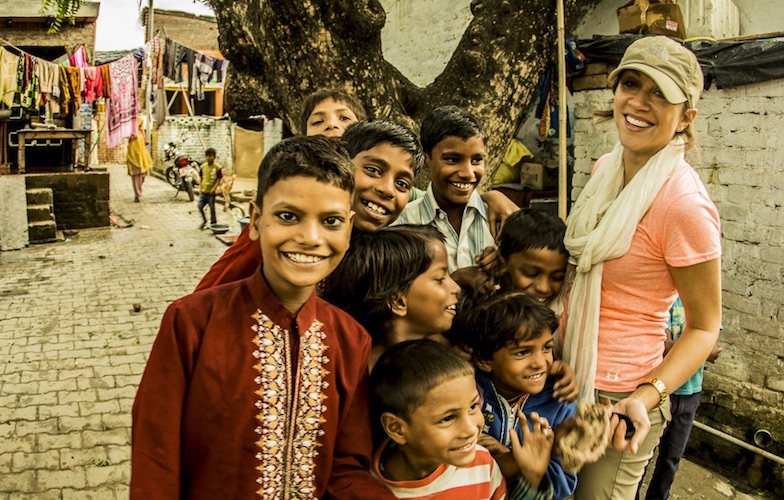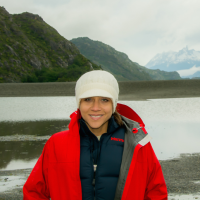There seems to be increasing attention focused on, now-grown, foreign-born adoptees in the U.S.
The New York Times recently issued a piece about Korean-born adoptees and the ongoing struggles that accompany adoption into a new culture.
The article describes how many are now returning to Korea to live, and I hope that they find answers they have long wanted.
Additionally, on January 9th the Washington Post Magazine published an article titled, “Please don’t tell me I am lucky to be adopted” by Shaaren Pine, a beautiful, Indian-born, Washingtonian discussing her experience as a foreign-born adoptee.
Though well-written and tragically insightful, I could not help but feel the unfairness, the residual resentment in Ms. Pine’s writing. The ongoing debate over intercountry adoption is not new, but these articles came to me at a particularly susceptible time. In several short weeks, my husband and I will travel to the Philippines to finalize the adoption of our four-year-old son.
This is a moment for which we have been waiting and working towards for quite some time. For as long as I can remember I have envisioned myself parenting an internationally adopted child; a “calling” one might say.
Every adoption begins with loss, I understand this. I know that our son has experienced more loss, abandonment and trauma in his short life than many of us can ever truly understand. The act of living, possessing sentience, comes with the inherent agreement that we will all, at some point, experience loss.
Yes, some are more fortunate than others (if your immediate family members are alive, I encourage you to show your gratitude in some form, today). I have experienced a number of recent losses myself, in the form of pregnancy loss, and most heartbreakingly, two years ago, I lost my mother after her 17-year battle with cancer.
At the risk of alienating and offending every other person in my life, I can honestly say, she was the only person I could not stand to lose and the only person I thought I would not be able to live without. One might argue that as I was 30 when I lost my mother, I had already developed my sense-of-self, something not possible for a child who is unable to verbalize and comprehend their emotions. While this might be true, I can promise that I will carry my loss, the same way that all adoptees, and my son will, for the remainder of my life.
I was born to immigrant parents and was a young child when we moved to the States. With two parents who were scientists, we traveled to visit family as often as funds and their careers would allow but, I too, grew up with questions about my heritage, and the cultures that were genetically, though not actively, mine. After my mother’s death, my father relocated, making my brother the last genetic family I have in this country.
I understand, on some level, the loneliness that a foreign-born adoptee must feel. I know the confusion of wanting to be grateful for what you have, but resentment and anger still run deeply for what is missing. I call it the intersection of F-you and Forgiveness. Recently, I realized that Life and I had reached an impasse. I wasn’t quite ready to forgive Life for the hand I had been dealt, but I was also tired of being angry.
So here I am, two years out from my mother’s death, my world forever changed, my awareness forever heightened, Steinbeck’s “tragic miracle of consciousness” finally revealed, but yet, I still stand at Life’s loneliest intersection. I voiced this concern in relation to our impending adoption to a dear friend recently, asking her, “How will I possibly care for a child who has so much sadness and baggage when I have so much myself?” She looked at me, and said quite frankly, “Lucy, I’m surprised you don’t see that this is the reason you are the perfect mother for this child.”
The thing that no one tells you about grief is that it makes you vulnerable, susceptible to acting out, making questionable choices, and over-sensitivity. You literally become a crazy version of your former self. In my 30-year-old self, this vulnerability has caused me to say and do things perhaps I shouldn’t have, it’s caused difficulties with colleagues, and it has caused me to be rude to the innocent grocery cashier who asked the obligatory, but ill-timed, “How are you today?”
In a four-year-old, vulnerability caused by the grief and confusion of being uprooted from the only life he has ever known, might present as behavioral issues or separation anxiety during a kindergarten drop-off. We know this. We understand that our son will have deeply rooted feelings of loss, and questions that might never be answered, but we hope we can offer him the opportunity to explore his identity and develop his sense-of-self in a safe environment.
The journey to adopt, and undoubtedly, the death of my mother, has led me to explore my own heritage. After my mother died, I felt so incredibly alone. I couldn’t bear to look in the mirror for three or four months after her death, because all I could see was her. She was the only person on this planet who was really like me.
Like the adoptees in the aforementioned pieces, I too, felt different growing up. As a child I was constantly fielding questions about my ethnicity; I’m still not completely sure how to answer that census question. I just wanted to be like everyone else. But, unlike many children who struggle with identity, I had the advantage of growing up just outside of the District of Columbia, in a racially and socially diverse environment. I quickly learned the value of acceptance, and witnessed the enrichment that is possible when a community is socially, racially and culturally, diverse and aware.
Perhaps it is an unrealistic and idealistic approach to assume going into our adoption—the notion that we will be able to just love away the hurt, loss and questions of belonging in our son. I’ve tried this tactic for many years now with my Siamese cat that hates to be picked up. Somewhere along the line I started believing that if I just held her, squeezed her long enough, showed her that she was safe in my arms, she would let go of her fear of being held and finally understand that this torture was just a demonstration of my adoration. Five years into this practice we really have nothing to show for it, other than a slightly psychologically disturbed cat, and a couple real-life reminders to update my tetanus shot.
Perhaps it’s dismissive and trivializing to compare our future parenting techniques to cat ownership (though, any Siamese cat owner will tell you that they rank highly on the scale of pain-in-the-assness). Allegorically, this experiment has taught me that it is impossible to forge a bond between any two beings.
Genetics doesn’t guarantee this either. Only love, patience and acceptance can––the same kindnesses that were extended to me after my mother’s passing. That is the flip-side to the vulnerability caused by grief; a broken heart also accepts love and kindness more openly.
There are so many who adopted me, made it possible for me to live in a place where I no longer had a traditional family, and made it clear to me, over and over again, my grief would be accepted in whatever form it appeared. I am forever indebted to those who have taught me this form of unconditional support and promise to make this my first priority when raising my son.
I have ongoing work in India, the country of Ms. Pine’s origin. I too feel very connected to India, its people, and their way of life. During my travels in India I have literally had women try to give me their child, and not for a photograph, or a hug—to take home. As you can imagine, this is a heartbreaking experience on many fronts.
Rather than Ms. Pine wondering if her birth mother loved her, perhaps it would be beneficial for her to just assume that her birth mother loved her so much that she gave her a different life, not necessarily better; it’s impossible to quantify better, but a different life, one that served her as a child. It is estimated that hundreds of thousands of children die on the streets every year in India. An Indian friend in public service recently shared with me that many of these bodies remain unidentified at the time of cremation.
I’m sorry that Ms. Pine suffered from such severe childhood depression, and though I know this will sound sanctimonious, maybe she should focus on the fact that she is lucky to be alive (as we all are) instead of “unlucky” to be adopted.
So yes, while I agree that it might be ideal for every homeless child to be adopted within their country of origin, it is not realistic. Instead, these foreign-born, and subsequently foreign-educated, children will have an opportunity to return to their ancestral home, if they so choose, and become leaders of change and examples of diversity in our ever-shrinking global community.
Relephant:
My Adoption Story: A Birth Mother’s Decision.
~
Author:Lucy A. Howey
Editor: Travis May
Photo: Author’s Own
~
Facebook is in talks with major corporate media about pulling their content into FB, leaving other sites to wither or pay up if we want to connect with you, our readers. Want to stay connected before the curtain drops? Get our curated, quality newsletters below!







Read 4 comments and reply